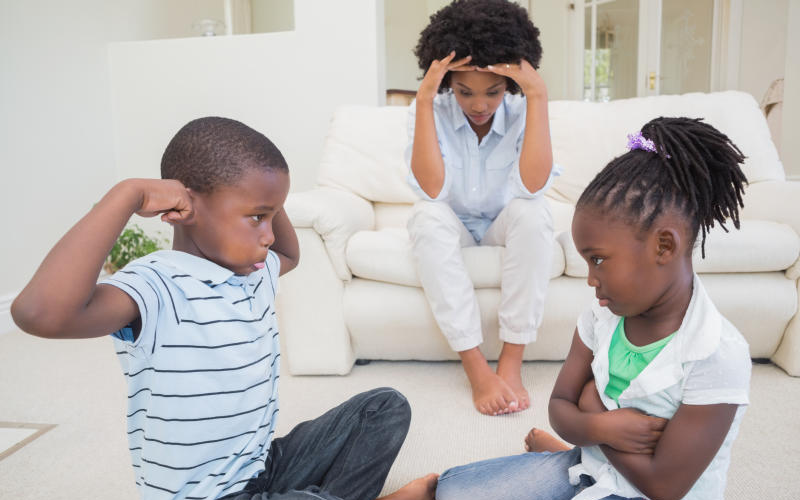When the school bell rang ushering in the long holidays, many parents breathed a sigh of relief, and anxiety for some. Suddenly, the quiet that used to live in your house has packed up and left.
The long holiday can turn even the calmest home into a mini market, full of chatter, laughter, quarrels, and a few minor explosions. But it can also be the best time to reconnect as a family, if you plan (and pace) it well.
Tiny tornadoes: toddlers and preschoolers
Prof Ida Kiambi, a family counsellor and University lecturer says for parents of little ones, the holidays are a test of creativity and stamina.
“The key is routine, even if it’s a flexible one, because children thrive on predictability – meals, naps, and outdoor play help them feel secure and save you from endless ‘Mum, what next?’ moments,” says Prof Kiambi.
The expert advises parent to think simple, sensory activities: building forts out of couch cushions, water play in the balcony basin, painting with leaves and bottle caps.
“Let them ‘help’ with chores such as stirring porridge, watering plants, or folding laundry, and although it may take longer, it teaches independence and keeps those tiny hands busy,” she says.
The busy bees: primary school children
For this age, says the family counsellor, it is the stage of ‘big curiosity,” and bigger energy, and the best way to handle this age group during the holidays, she says, is to keep them engaged with a mix of fun and responsibility.
“Assign small chores such as setting the table, sorting laundry, feeding the pet. Involve them in cooking or shopping, as these teach them about budgeting and patience,” says the expert.
Phoebe Mulinde, a mother of three, two boys and a girl, aged seven, ten and 13, says before she got it right, the long holidays were not something she liked, but after family coaching sessions and sharing with parents during parenting breakaway sessions at her local church, this changed.
“I plan for the holidays’ with ease and pleasure and I make sure I involve my children in the planning,” she says.
The plans include local adventures: a day at Uhuru Park, a walk through Karura Forest, a visit to Nairobi Orphanage and National Park, or a visit to both their paternal and maternal grandparents upcountry.
Other activities that have helped channel all the energy positively, she says, include: holiday reading c=lubs, church events, and football tournaments. The mother of three advises parents to always be aware that boredom is not always bad. “It’s the soil from which creativity grows. Give them space to invent their own fun.
Teen territory: The mood swings and eye-rolls
David Orende, a psychologist says teenagers are difficult to predict.
“They appear at noon, earbuds in, and say they’re ‘bored’ five minutes later. The secret to surviving this stage during these long holidays is to balance freedom with gentle boundaries,” he advises. The success story, he says, is to talk to them, and handle them like partners, not projects. “Encourage them to volunteer at a children’s home, a church event, or even mentoring younger cousins, and if possible, help them explore short holiday jobs or creative hobbies like photography, art, or coding.
Above all, Orende advises parents to “respect their teen’s space as they often process emotions differently, and a bit of breathing room goes a long way”. He tells parents to share mealtimes, plan one-on-one moments, and let them see their presence, even when they are not hovering”.
Young adults: The boomerang generation
Orende says for parents of college students or recent graduates, the long holidays mean their “empty nest” is suddenly full again. “You’re rediscovering each other as adults, with all the joys and small frictions that come with it.
He recommends that parents set shared expectations early: who is using the car, who is on dish duty, and how late is too late to come home.
Parents of young adults, he says, should involve them in family plans, among them: budgeting, shopping, or mentoring younger siblings, as this helps them transition from dependents to contributors.
Experts say there is no perfect way to parent through the holidays, because some days will feel like a sitcom, others like a survival show, but hidden in the chaos are moments of laughter, growth, and togetherness that children will remember for years.
So, lower the pressure, raise the patience, and find your rhythm – play, rest, repeat.
Come January, when the school bell rings again, you’ll miss the noise… even if just a little. Because the holidays don’t have to be about surviving — they can be about rediscovering each other.


